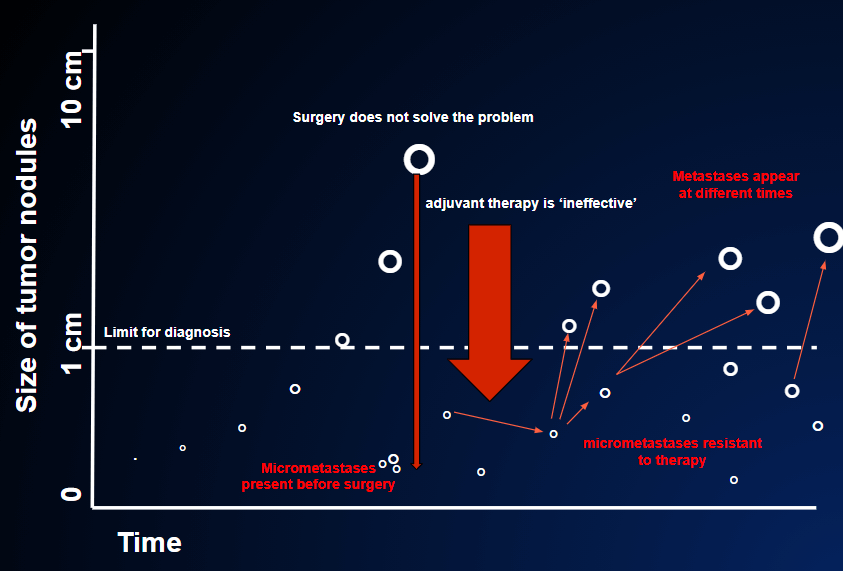From a technical point of view, metastases could be surgically removed in many cases.
So, why does this not happen in the majority of cases? Because, in general, it is useless and may actually worsen the situation. There are two reasons:
- it serves no purpose;
- an operation could make things worse.
1. Bearing in mind what has already been said about the time it takes for tumor cells to double (HOW LONG HAS THIS TUMOR BEEN THERE?) and the fact that imaging examinations have a limited ability to detect metastases, it is clear that, even if we can see 3-4 metastases at the moment, many more will become visible within 1-2-3 months. FIGURE 14

Indeed, in this short period of time, those metastases that are not yet visible can double in size to 5-10 mm, which is the minimum size required for them to be detected by imaging examinations. This means that, if those 3-4 metastases visible on CT examination were removed, another 5, 6 or 20 would appear within a few months, and we would be back to square one. Moreover, if these new metastases were removed, the same problem would arise again within an even shorter time.
2. There is another reason why metastases are not surgically removed in most cases. Every time the scalpel cuts through the tissues, growth factors are released; these would stimulate the residual tumor cells – whether nearby or at a distance – which would then divide more quickly than they are already doing. This explains why, in many cases in which an attempt is made to remove metastases surgically, not only do the metastases “re-form” within a short time, but also they become more aggressive and grow more rapidly than before.
As always, however, there are exceptions, and it is very important to be able to recognize those conditions in which the surgical removal of metastases, or their elimination by means of radiotherapy or radio-frequency, may possibly achieve a cure. (see the 4 particular characteristics described in SOME DISTANT METASTASES ARE OPERABLE)
